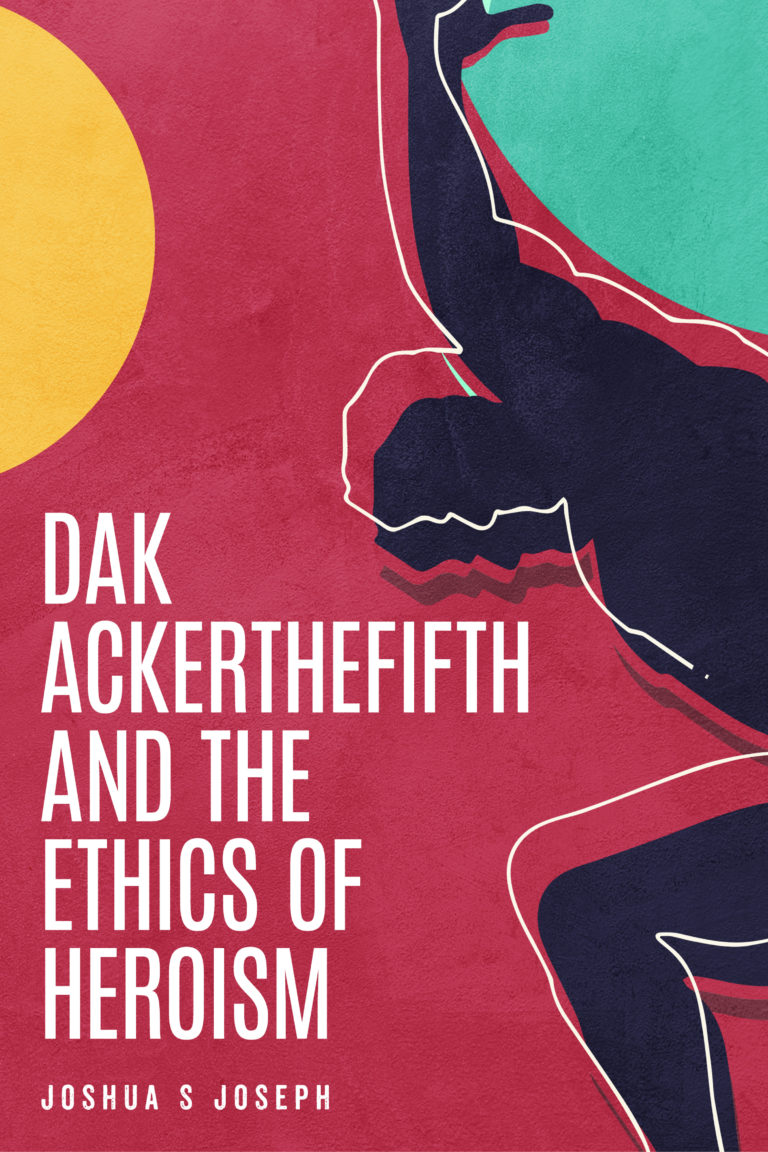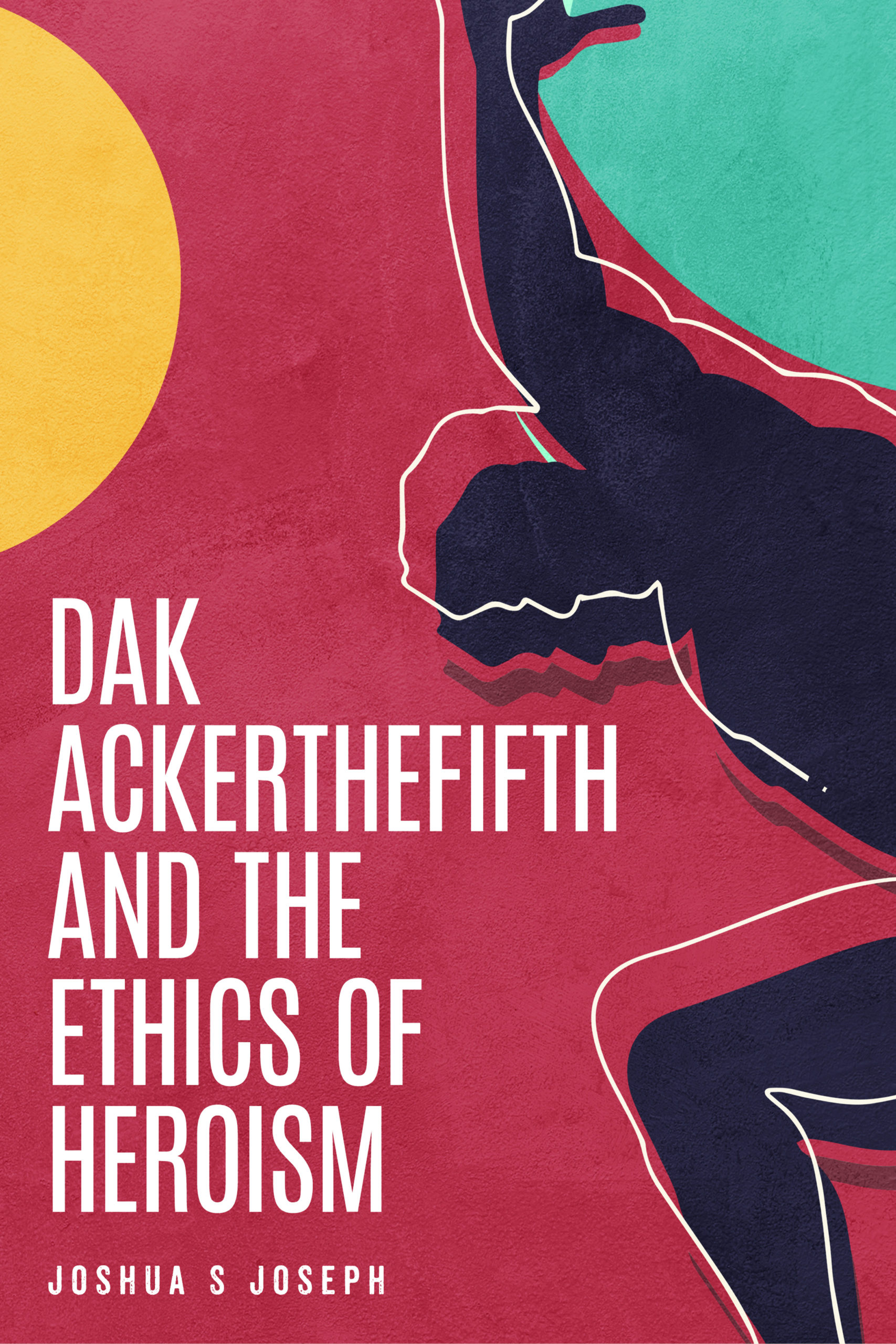The title of Joshua S Joseph’s novel, DAK ACKERTHEFIFTH AND THE ETHICS OF HEROISM, nicely encapsulates the amalgam of themes and tones presented in this inventive, self-aware text. The novel blends absurd incidents with serious reflections, fiction with philosophy, singular or, rather, idiosyncratic characters with general problems and dilemmas. But heterogeneity, in this instance, should not be mistaken for a hodgepodge; instead, the author offers a well-wrought narrative centering, in part, on the reasons for and consequences of the stories we tell about ourselves and others, and how those stories never stop being subject to revision.
The opening chapters provide an initial sketch of the eventful lives and untimely deaths of Richard Ackerthefifth and his wife, Rudy Trudy Ackerthefifth, the parents of Dak and Emily. Dak is the narrator as well as the protagonist of the novel, and his preliminary account of his family’s history will later be contested by Ji, the guru whom Dak has long blamed for his mother’s death—erroneously, as it turns out. In this way, the author sets up, from the start, a pattern that will be used throughout the novel, whereby the narrative circles back to a first, rough account of events and re-narrates them by placing them in a larger context that becomes evident only later. The novel thus underscores how, with the benefit of hindsight, things often prove to be otherwise than they once seemed. Indeed, this same pattern or working method applies to Dak’s account as whole, with Dak revealing in the final chapter that he has made repeated attempts to tell his and his family’s story, each version casting the key characters and events in a different light. (Readers familiar with Ian McEwan’s Atonement may be reminded of the similar, rug-pulled-out-from-under-your-feet effect of Briony Tallis’s disclaimer toward the end of that novel.)
The net result of these narrative returns and revisions is a novel that undercuts the self-heroizing tendencies of its narrator and protagonist, since any episode in which Dak casts himself as hero or rescuer is bound to be undone, or at least redone, as the text unfolds. Yet this schematic outline of the novel’s self-revising logic fails to do justice to its engaging use of humor, its vivid and memorable characters, and its sheer readability. Highlights include the more or less extended meditations in which (one can infer) the author and narrator converge on issues ranging from the legacy of great writers, to the difficulty of undergoing real personal change, to the complexity of Jewish attitudes toward Israel; Dak’s dramatic, often volatile interactions with Esther Frinkelberg, over the course of which both characters seem to experience every identifiable emotion, and then some, as well as Dak’s far-reaching, one-on-one philosophical debates with Esther’s larger-than-life brother, Abe; and an uproarious scene at a Japanese restaurant in which, thanks in part to multiple bottles of saké being consumed, the dinner participants’ censoring mechanisms seem to be deactivated and they speak not just freely but scathingly, brilliantly, and at great length—to hilarious effect.
By turns boisterously comic and searchingly poignant, Joshua S Joseph’s inventive novel, DAK ACKERTHEFIFTH AND THE ETHICS OF HEROISM, features vivid characters, effective pacing, and a protagonist who, in telling the story of his life, must rethink the overarching narrative of heroism he has used as a template for interpreting his own actions and experiences.
~David Herman for IndieReader


